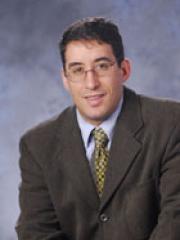
Dr. Leamy, principal investigator, will work along-side Chiara Daraio at Caltech, and Sameh Tawfick and Alexander Vakakis at the University of Illinois on the project entitled “Non-reciprocity in Acoustic Systems with Nonlinear Hierarchial Internal Structure and Asymmetry.” The proposal originated in conversations between Leamy, Vakakis and Daraio at a Euromech colloquim in Grenoble, France, where the researchers discussed their mutual work on breaking reciprocity using nonlinearity and asymmetry – a goal that has received a swell of attention for breaking time reversal symmetry in linear systems. Tawfick later joined the team as a fabrication expert and when the EFRI issued the call for proposals, the team felt they could address the problem of non-reciprocity in a way others were not considering -- a novelty Dr. Leamy believes has contributed to the team’s success.
Leamy’s research will investigate new theoretical and practical knowledge on the application of nonlinearity, asymmetry, and mixed scales to design and fabricate ground-breaking materials and devices, yielding materials which overcome traditional bounds on time-reversal symmetry and acoustic reciprocity. The research aims to transform the field of nonlinear acoustics, promoting a new paradigm for predictive design with nonlinear non-reciprocity.
These transformative reciprocity-breaking materials and systems, which exhibit directed cross-scale energy transfers breaking time reversibility and reciprocity both locally and globally, are expected to find wide application in diverse fields, including noise-mitigating transportation systems; medical ultrasound devices; atomic force microscope (AFM) sensing; acoustic filters and logic devices; sonar; and energy control and redirection.
“Our attack on breaking reciprocity is broadband in nature and ‘giant,’ meaning the materials and structures we are developing will break reciprocity over a large frequency range, and will nearly-completely block transmission of acoustic energy in one direction and not the other,” explains Leamy. “We believe these traits make the research applicable to a wide variety of acoustic devices.”
The research will also provide planned curriculum development and outreach activities aimed at increasing exposure of engineering students, and the public, to the exciting physics of acoustic materials, promoting interest in science, technology, engineering, and mathematics. “We believe the fundamental nature of the work makes it attractive as an education vehicle. For example, we plan to work with a mathematician at Clark Atlanta University in order to bring the ideas to mathematics undergraduate students with underrepresented backgrounds,” says Leamy.
At the Georgia Institute of Technology, Dr. Leamy serves as Associate Professor of Acoustics/Dynamics and was awarded the 2017 Woodruff Faculty Fellow Award in recognition of his exceptional research initiatives. His research interests lie in emerging and multidisciplinary areas of engineering science with an emphasis on simulating nonlinear dynamic behavior present in structures and materials, and center on developing analytical and computational models capable of capturing linear and nonlinear response in systems ranging from the macro- to the nano-scale. Leamy’s research has been supported by the Ford Motor Corporation, General Motors, Ferrari S.p.A., the National Science Foundation, the Department of Energy, the Defense Threat Reduction Agency, the Army Research Office, the Office of Naval Research, Électricité de France, and ThyssenKrupp Elevator America.
